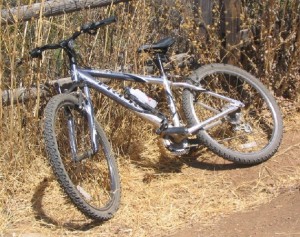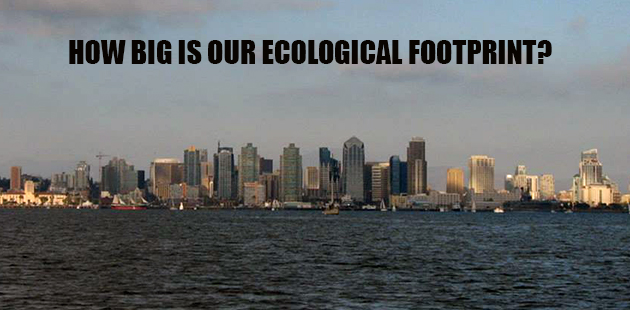Earth Day is like office day
Welcome to Earth … Day.
Earth Day is a little bit like having a “kitchen day” or an “office day.” We’re essentially celebrating our environment — all while trashing it.

In ecological and environmental science circles, they commonly throw around the phrase “Carrying Capacity” to describe the ability of a certain place to sustain the life forms that exist therein, given the current resources being used and replenished. This capacity is represented by the character ‘K,’ sadly seen most often when they describe our current state: We are currently ‘Overshooting K.’ We are overestimating and spending beyond our capacity. In both scientific and laymen terms, they call our impact upon the environment our “ecological footprint.”
The many variables involved make this problematic. Calculating one’s ecological footprint is a clear goal with unclear methods. The most “modern” scholarly article I could find that clearly addressed the topic was in 2005, which would be acceptable if they were writing about something concrete. For example, writing about how to calculate the rate at which an object will accelerate under the influence of gravity (9.8 m/s²) would be unchanging over time, but the facts behind human consumption change as we invent and shift and increase our numbers.
And why do all the people out holding signs to save the earth have to look so crazy? Take a shower; water is a renewable resource. Cut your beard; it’s not a tree … though a bird may mistake it for a good nesting area.

It might be hard to measure our exact impact on the environment, and it might be hard to take some of the people who care seriously, but it’s easy to understand the concept of taking more than you give. And we do this daily.
As kids, we may have all gone to the landfill to see and smell the piles of wreaking garbage (*Please, please tell me this wasn’t just my school torturing us), but we probably don’t think about that as we decide which products to buy at the grocery store. We don’t think about how to cut down on the waste we produce doing price checks and using coupons to simply settle on the best monetary bargain. Even though we know that excess packing can’t be good, we know not paying the bills is worse. What if there were smart ways to be prudent both environmentally and economically?

Here’s a short list of ways you can go Earth-crazy without actually going crazy:
(1) Make your own Shampoo. Here’s a natural, four ingredient list from Wellness Mama’s website:
*1/4 cup coconut milk
*1/4 liquid Castille soap
*20 drops of Essential Oils of choice (She recommends peppermint, lavender, rosemary, etc.)
*1/2 tsp olive or almond oil if you have dry hair
(2) Walk whenever possible.
This one depends on your schedule, how many children you have, and where you live, but if you have the time and ability to walk somewhere, do it! I used to make myself walk any place within 2 miles if I was off work for the day, back when I lived in a safer area (West Seattle). These days, I may not be able to walk to the grocery store at 8 p.m., but I really have no excuse not to get up an hour earlier and walk to work.
(3) Buy food with less packing.
While it may initially seem like a big hassle, many items in that constitute packaged food actually costs more, so in the long run, you may save money and get healthier!
(4) Recycle.

This is easier for some than others, as states and regions vary in their policies and availability regarding recycling. I live a little south of Portland, Oregon, so if I throw cardboard into the garbage absentmindedly, the recycle Nazis will find me. And they will fine me. Well, not really. But I hear rumors.
(5) Get a lunchbox and reuseable bags for your work lunches and grocery shopping.
(6) Clean your lint filters — and save up to 30 percent of your energy.
(7) Give Goodwill a chance. You’ll be less likely to regret that frivolous purchase of $14.99 than $49.99.

Megan Wallin is a young writer with a background in the social sciences and an interest in seeking the extraordinary in the mundane. A Seattle native, she finds complaining about the constant drizzle and overabundance of Starbucks coffee therapeutic. With varied work experiences as a residential counselor, preprimary educator, musician, writing tutor and college newspaper reporter/editor, Megan is thrilled to offer a unique perspective through writing, research and open dialogue.

